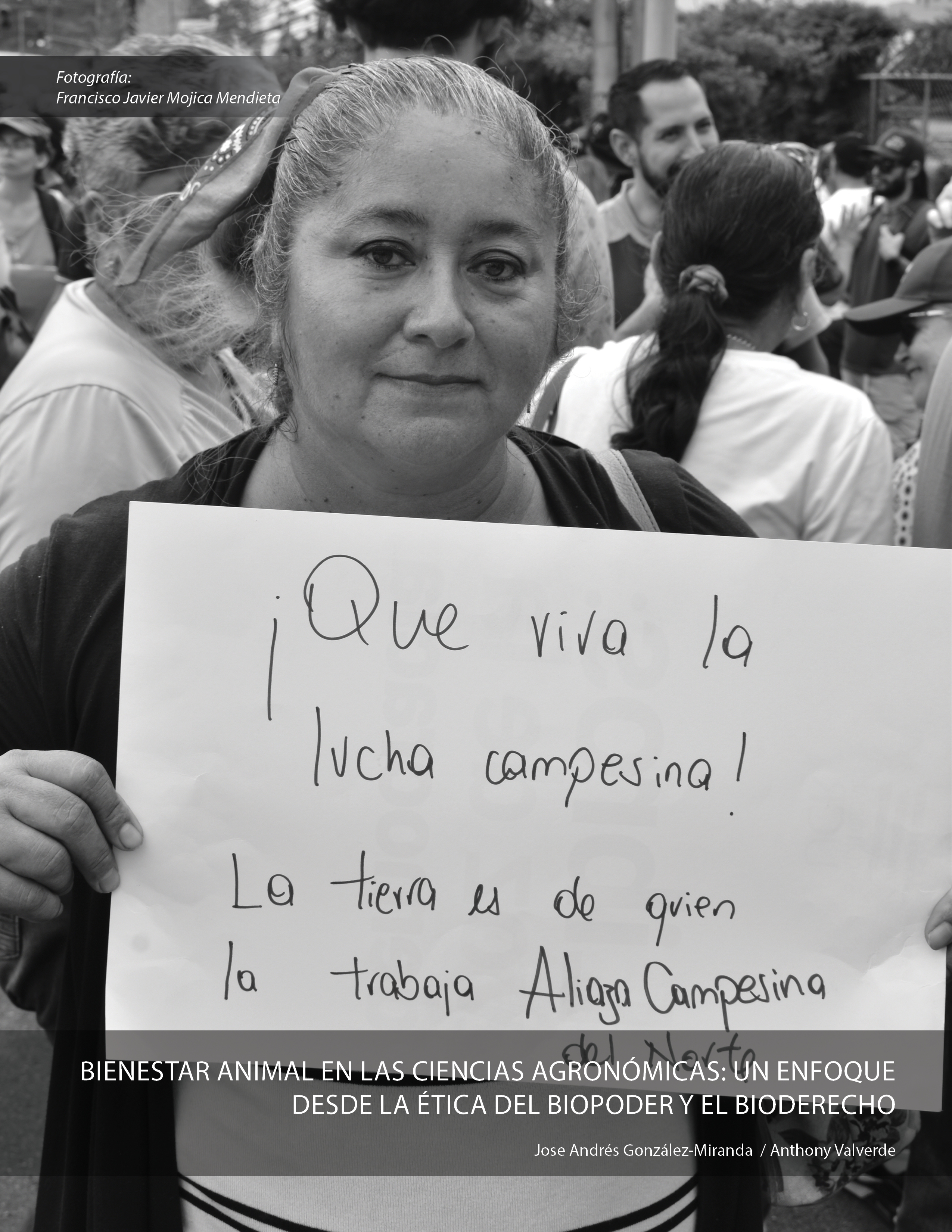BIENESTAR ANIMAL EN LAS CIENCIAS AGRONÓMICAS: UN ENFOQUE DESDE LA ÉTICA DEL BIOPODER Y EL BIODERECHO
Conteúdo do artigo principal
Resumo
Las cuestiones éticas sobre el bienestar de los animales no humanos surgieron como una necesidad de la sociedad por conocer los sistemas de producción, originada por inquietudes morales y de ética social. El objetivo de este trabajo es reflexionar desde el ámbito ético-jurídico costarricense, sobre el uso de la racionalidad dominante de los animales humanos sobre los no humanos, discutiendo el biopoder y aplicando los principios bioéticos que aseguren el bienestar animal. Cada vez más se empieza a considerar a los animales como algo más que “cosas” por lo que el estudio de las relaciones entre humanos y animales no humanos se ha ampliado a otras áreas más allá de la zootecnia como la experimentación e investigaciónn animal. La bioética valora y determina principios básicos en relación con los animales, como la autonomía y la toma de decisiones, la beneficencia y evitar el sufrimiento, la no maleficencia y no dañarlos, así como promover un trato justo, equitativo y humanitario. El enfoque desde el bioderecho permite regular criterios bioéticos en respuesta a los problemas derivados del bienestar animal. La ética animal centra su estudio en consideraciones morales que pueden recibir los animales no humanos y las consecuencias posteriores. La sensibilidad social sobre el bienestar animal continúa creciendo y los comités de bioética cada vez más abordan temas relacionados con experimentos científicos que involucran animales, así como a los ganaderos en sus sistemas de producción, por lo que es necesario determinar cuáles son los criterios éticos para la toma de decisiones por los comités de bioética.
Detalhes do artigo

Este trabalho está licenciado sob uma licença Creative Commons Attribution-NonCommercial-NoDerivatives 4.0 International License.

This work is licensed under a Creative Commons Attribution-NonCommercial-NoDerivs 3.0 Unported License.

